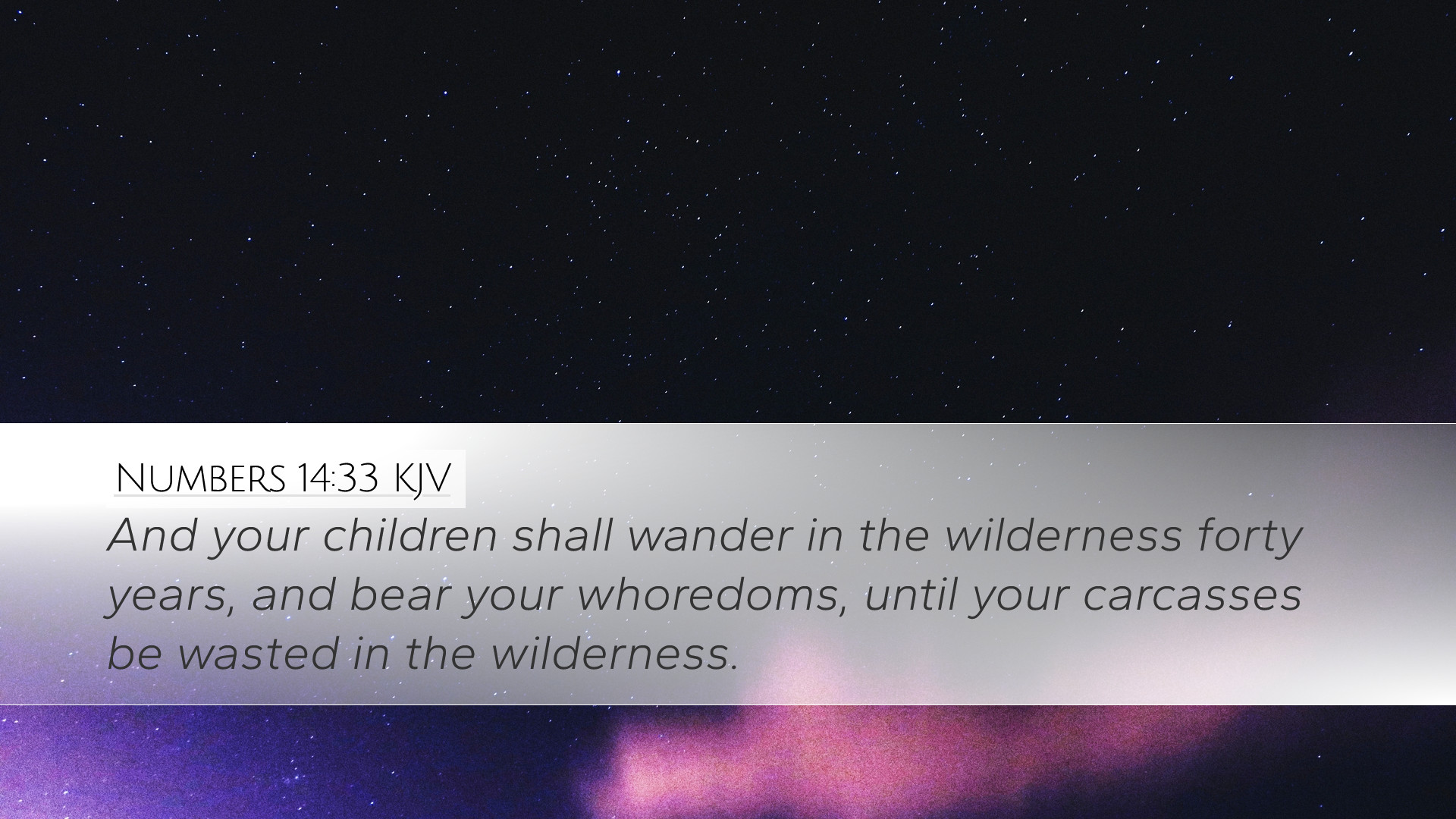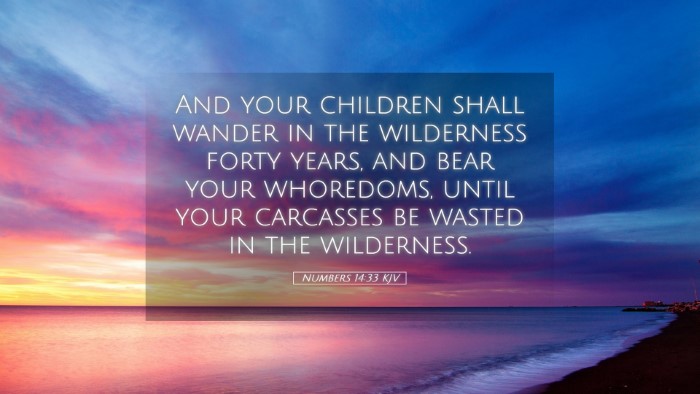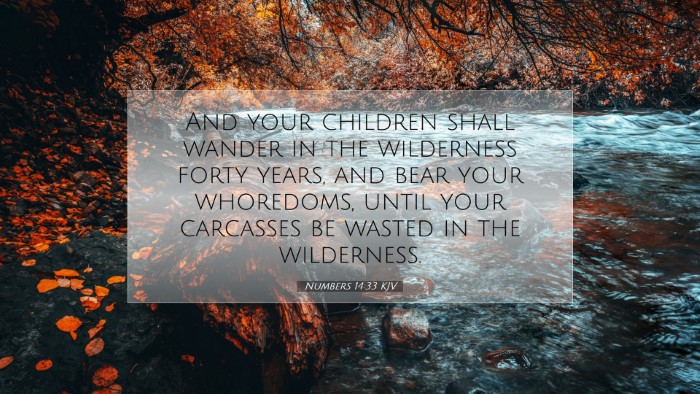Commentary on Numbers 14:33
Numbers 14:33 states: "And your children shall wander in the wilderness forty years, and bear your whoredoms, until your carcasses be wasted in the wilderness."
Contextual Understanding
This verse occurs in the broader narrative of Israel’s rebellion against God after the report of the spies regarding the Promised Land. The people had expressed doubt and despair, leading to severe consequences as articulated by Moses and clarified by God.
Theological Implications
The punishment described in this verse emphasizes the principle of corporate responsibility among the Israelites, illustrating how the actions of parents can lead to dire outcomes for their children. This thought is echoed in various commentaries, highlighting themes of divine justice and mercy.
Insights from Commentary
Matthew Henry’s Commentary
Matthew Henry posits that this statement reflects God's justice, as the children of those who rebelled would experience the consequences of their parents' sins, but they would also inherit the blessing of entering into the Promised Land after the older generation perished. Henry points out that God’s wrath has a lasting impact, yet His mercy ultimately triumphs. He notes:
"They shall wander in the wilderness, while you must perish; and you must bear the iniquity of your actions."
Albert Barnes' Notes on the Bible
Albert Barnes elaborates on the metaphorical meaning of “whoredoms,” suggesting it reflects spiritual unfaithfulness to God. He indicates that God’s declaration carries an element of divine pedagogy, intending for the wandering to be a period of discipline for the Israelites. He writes:
"The children are to share in the consequences of their father’s sins, wandering as a reminder of faithfulness and loyalty owed to the Lord."
Adam Clarke's Commentary
Adam Clarke frames this verse within a discussion regarding the nature of God’s justice. Clarke’s interpretation implies that God allows children to bear the burdens of their fathers' indiscretions, seeing this as a means of correction. He emphasizes repentance and the need for recognition of sin:
"The wilderness wanderings were not mere punishment but were designed to wean them from idolatry and to prepare them for a renewed covenant with God."
Lessons for Pastors and Theologians
For pastors and theologians, Numbers 14:33 offers deep insights into the nature of sin, judgment, and mercy. It serves as a reminder of the seriousness of spiritual fidelity and the implications of communal sin. Furthermore, it invites reflections on leadership and its influence on future generations.
Reflection on Corporate Responsibility
-
Sin’s Ripple Effect: The actions of one generation can significantly shape the spiritual landscape of another.
-
Hope in Discipline: While God’s judgments seem severe, they often come with the intention of corrective mercy and restoration.
-
The Role of Leadership: Leaders are called to guide their communities towards faithfulness, recognizing that their influence can lead others either to ruin or to salvation.
Conclusion
In conclusion, Numbers 14:33 resonates with the profound theme of God's justice intertwined with His mercy. It reminds believers of the importance of faithfulness to God and the solemn responsibility that comes with leadership. As the church reflects on this verse, may it foster a deeper understanding of God’s nature and inspire a commitment to guide future generations in righteousness.


